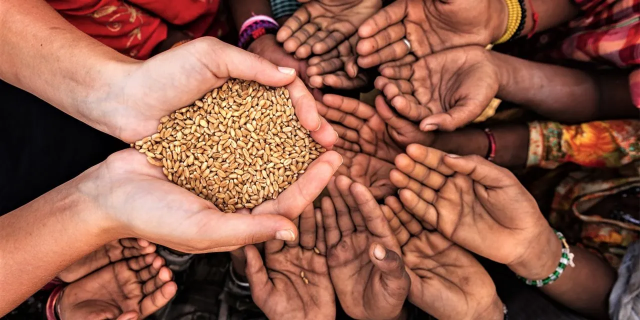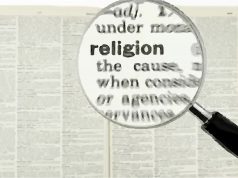In today’s world, human behavior and societal dynamics are often influenced by a variety of factors, including personal inclinations, societal norms, and religious teachings. From an Islamic perspective, these aspects are deeply intertwined, with Qur’anic guidance offering insights into the complexities of human nature and the consequences of societal choices.
Individual Wellbeing & Societal Welfare
The Qur’an emphasizes the interconnectedness of individual well-being and societal welfare. It encourages believers to share their wealth with others, emphasizing the importance of generosity and compassion. For instance, the Qur’an Says “Who is it that would loan Allah a goodly loan so He will multiply it for him and he will have a noble reward?” (Qur’an, 57:11) underscores the concept of giving as a means of earning divine blessings and rewards. This perspective challenges the notion of selfishness and highlights the importance of altruism in fostering societal harmony and prosperity.
Furthermore, the Qur’an warns against the pitfalls of materialism and greed, urging believers to prioritize spiritual values over worldly possessions. Qur’anic teachings emphasize the transient nature of material wealth and the importance of using it for virtuous purposes, such as supporting those in need and contributing to the betterment of society. By adhering to these principles, individuals can cultivate a sense of purpose and fulfillment that transcends mere material wealth.
However, human nature is often characterized by inherent flaws, including selfishness, ignorance, and impatience. As the Qur’an says: “Man is hasty by nature.” (Qur’an, 21: 37) acknowledge these limitations, highlighting the need for self-awareness and introspection. Despite these challenges, Islamic teachings offer guidance on overcoming human weaknesses and striving for moral excellence.
In the modern capitalist world, the pursuit of profit often takes precedence over ethical considerations, leading to societal disparities and injustices. Qur’anic injunctions against usury and exploitation underscore the importance of ethical conduct in economic transactions.
As the Qur’an states: “Allah deprives interest of all blessing and develops charity” (Qur’an, 2: 276). This principle highlights the moral imperative of prioritizing social welfare over individual gain.
Individual well-being hinges on societal welfare. Sharing wealth with needy close relatives, neighbors & needy stimulates circulation, yielding returns. Selfishly hoarding wealth depreciates it. Neglecting those in need obstructs community contribution, risking societal harm and potential crime. Assisting them in becoming productive members benefits both individuals and society.
Ultimately, the solution to societal challenges lies in embracing the teachings of the Qur’an and embodying its values in everyday life. Faith in Allah and belief in the Day of Judgment serve as guiding principles, motivating individuals to act with compassion, integrity, and justice.
Meaning & Historical Context of Almsgiving – Zakah
Zakah, or almsgiving, is one of the fundamental pillars of Islam, essential to its very structure. The word “Zakah” itself means purity and cleanliness, reflecting the act of dedicating a portion of one’s wealth to the needy and poor.
By giving to others, a Muslim purifies both their wealth and their soul. Without giving to the poor and needy, one’s wealth remains impure, and so does their inner self. This principle underscores the importance of Zakah in maintaining both personal and communal integrity.
After the death of Prophet Muhammad (PBUH), some tribes refused to give Zakah. Abu Bakr R.A., the first Caliph, declared war on them, treating their refusal as a rejection of Islam, despite their practice of prayer and profession of faith in Allah and His Messenger. To Abu Bakr R.A., Zakah was an integral part of Islam, essential to its practice and belief. He famously stated, “By God! If these people withhold the Alms they used to give during the time of the Prophet, even if it be a piece of rope by which a camel is tied, I shall raise my sword against them.”
Sustaining the Moral and Social Fabric
Muslims are required to donate 2.5% of their wealth annually to help the needy and poor, with the goal of uplifting them to become self-sufficient. This system of obligatory giving creates a progressive society where the wealthy support the less fortunate, fostering a spirit of solidarity and communal growth.
In essence, Zakah is not merely a charitable act but a fundamental duty that purifies wealth and sustains the moral and social fabric of the Islamic community. Through Zakah, Islam ensures that the needs of the less fortunate are met, promoting a balanced and just society.
The True Meaning of Jihad
The Prayer, Fasting, Almsgiving, and Pilgrimage are so important that they are described as the pillars of Islam. They are not, however, like the worship rites in other religions. This distinction must be understood clearly. Nor are they meant to please Allah through mere outward observance. These acts of worship have actually been ordained to prepare us for a greater purpose and to train us for a higher duty. Now that we have examined in detail the nature of this training and preparation, let’s address the most crucial question: What exactly is that great ultimate purpose?
Stated simply: the ultimate objective of Islam is to abolish the lordship of man over man and bring him under the rule of the One Almighty. To stake everything you have – including your lives. This requires a struggle, and the term used for this is JIHAD.
This is mostly misunderstood and also propagated by some as violence and also connected with a notion that Islam promotes violence, rather the literal meaning of this word is ‘To Strive’ or ‘To Struggle’.
The Pervasive Nature of Corruption
Corruption in every aspect of life breeds widespread societal evils. Evils thrive because people either propagate or tolerate them. Adultery and prostitution persist openly due to individuals’ indifference or participation. Rampant interest rates and exploitation of the poor are facilitated by governmental support. Moral decline and permissiveness are fostered by education and policies. Violence escalates as corrupt leaders misuse knowledge and resources for destructive ends. Oppression, injustice, and societal decay ensue when power falls into wicked hands. As long as corrupt leaders hold sway, society cannot progress toward righteousness.
Oppression is rampant across the globe. The weak are denied justice and the poor struggle under the weight of life’s burdens. Courts have become places where justice is traded for money. Dishonesty is at its peak, people face exorbitant taxes, feudal lords, money-lenders, corrupt religious leaders, pornographers, gambling bosses, drug dealers, alcohol manufacturers, and pimps are destroying lives, wealth, honor, and morality, with no one to stop them.
Why is this happening? It’s because the whole system is corrupt, and power is in the hands of the wicked & mannerless. These leaders perpetuate oppression and side with oppressors. Distorted thinking, moral decay, misuse of human talents, dishonest and exploitative business practices, and the destruction of God’s creation all result from this: power is held by the wrong people. As long as corrupt and evil individuals hold power, human society cannot be set on the right path.
Embracing the Concept of Jihad
To achieve human well-being and happiness, we need to tackle the root causes of societal evils by eliminating all forms of power that defy God’s laws. Preaching against adultery alone won’t stop it, if society allows it to continue. Similarly, goes with the other vices like drinking, gambling, usury, bribery, pornography, and corrupt education. When society permits these behaviors, sermons alone can’t eradicate them.
Power is crucial in eliminating these evils. Exhortations and good counsel alone are not enough to end exploitation, prevent the misuse of wealth and talent, eliminate oppression, establish justice, combat corruption, halt bloodshed, uplift the downtrodden, and restore equality, prosperity, and peace. We need those in authority to show that corruption, oppression, injustice, exploitation, immorality, and godlessness will not be tolerated and that positive actions will be taken in accordance with God’s laws to create a just, God-fearing, and God-loving society. If we truly want to eradicate the widespread corruption on God’s earth, we must stand up against corrupt rule. It is futile to believe that change can come through preaching alone; a continuous and active struggle is necessary.
Thus, in order to be free from all these sorts of evils, Islam demands its followers to strive against all these evils and the systems. Striving against such acts and evils, and establishing and following the just system of the Almighty, free from all evils, is termed Jihad. Thus, the literal meaning of Jihad is to strive against evil. And it starts from fighting one’s self and desires.
Conclusion:
To conclude, Islamic teachings offer a holistic understanding of human behavior and society, emphasizing the connection between individual well-being and social welfare. The Qur’an promotes values like generosity, compassion, and ethical conduct, guiding believers to prioritize spiritual richness over material wealth. Zakah, as a form of almsgiving, is highlighted as a means to purify wealth and foster societal growth. Ultimately, Islam aims to establish a just society, free from corruption and injustice, through the concept of Jihad, which means striving against evil. By following these principles, individuals can contribute to a balanced, just, and harmonious society, reflecting true Islamic values.






